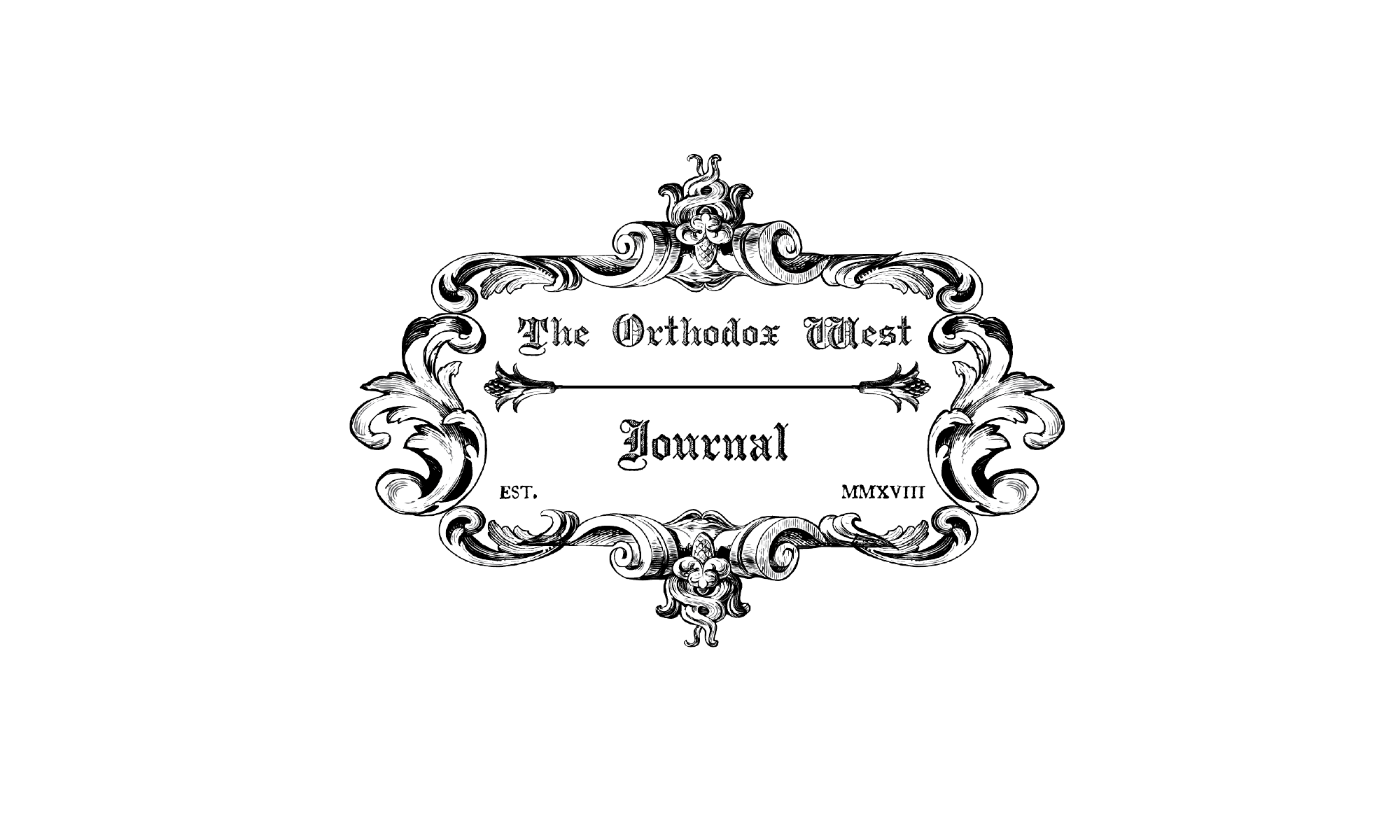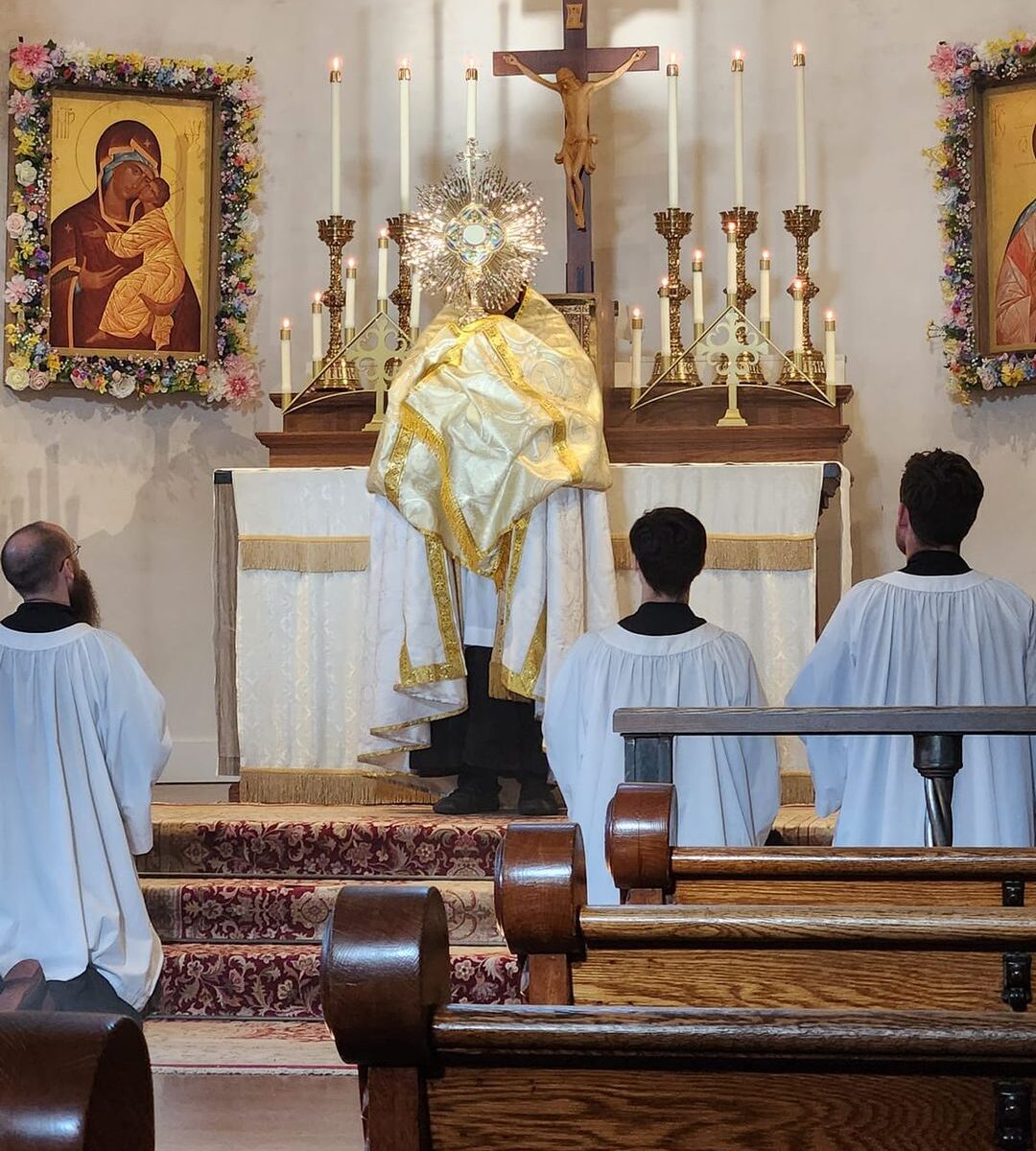The devotion to the Sacred Heart also is rooted in intuitions of the early Church and even in the Old Testament. Fundamentally, it is a recollection of the sacrificial love of Christ as witnessed in His Incarnation, passion, and death. It includes also, the fullness of Divine love for mankind which is evidenced throughout the history of our race and is fulfilled in Christ’s act for the salvation of man.
A Condensed History of the Orthodox Western Rite
Any history of the Western Rite movement of the Orthodox Church should properly begin with Saints Cyril and Methodius, who operated during the ninth century in Moravia and Dalmatia. With the blessing of Pope Adrian II, later confirmed by Pope John VIII, these saintly brothers offered the Roman Mass in the vernacular to the people they were evangelizing. When offering the Roman Liturgy, they employed what is sometimes called “The Liturgy of St Gregory,” whose liturgical forms were set by the 6th century and codified by Pope St Gregory the Great (known as Dialogus). Continue reading “A Condensed History of the Orthodox Western Rite”
Fr. Alexander Schmemann and the Western Rite
In June of 1981, I was transferred from my first parish, a Byzantine Rite congregation in Oklahoma, to my second, St. Andrew the First-Called, in Florida. To my knowledge I was the first Orthodox seminary-trained priest to serve in a Western Rite church, and the result was no small discussion. I lost my Father Confessor, who was convinced I had somehow ceased to be Orthodox, although we have since reconciled. Other friendships were put on hold, and there were innumerable sarcastic remarks and jokes about the Mickey Mouse Western Rite, for it is good and pleasant when brethren dwell together in unity. Continue reading “Fr. Alexander Schmemann and the Western Rite”
A Brief Perspective on the Modes of Baptisms
The liturgical-sacramental experience of baptism is understood amongst a great deal of Christian denominations[1] to be a transformative experience of salvific reality, necessary for the Christian participant. Containing within itself a nearly universal recognition of importance amongst Christians, the liturgical form of baptism is often debated as to how one should receive this sacrament: weather by sprinkling, pouring, or immersion of water.
Continue reading “A Brief Perspective on the Modes of Baptisms”
Benediction-Adoration: A Beautiful Vision
A Reasonable Philosophy for the Western Rite
“Congregations and parishes, or larger administrative units, may be received…and be permitted to retain and use all such Western liturgical rites, devotional practices and customs that are not contrary to the Orthodox faith and are logically derived from a Western usage antedating the Papal schism of the eleventh century.” This is from the 1958 Western Rite edict of Metropolitan Antony of the Antiochian Archdiocese of North America. Continue reading “A Reasonable Philosophy for the Western Rite”
Bishop Basil Comments on the Western Rite
My observations begin with my own experience with Western Rite. Some of you who have known me since I’ve been consecrated have heard this confession before. Before I was thoroughly exposed to the Western Rite by attending services, I was very leery. I knew that philosophically and historically it was legitimate. But I couldn’t believe that it could be authentic. And that was because I hadn’t experienced it. So the confession is that you have a convert here.
Continue reading “Bishop Basil Comments on the Western Rite”
Orthodox and Catholics in the Seventeenth Century: Schism or Intercommunion?
EVENT OR PROCESS?
For use on the first Sunday in Lent, the service books of the Greek Orthodox Church include a special office known as ‘The Synodikon of Orthodoxy’, which contains no less than sixty anathemas against different heresies and heresiarchs.1 Yet in this comprehensive denunciation there is one unexpected omission: no reference is made to the errors of the Latins, no allusion to the Filioque or the papal claims, even though more than a third of the anathemas date from the eleventh to the fourteenth centuries, a time when doctrinal disagreements between East and West had emerged clearly into the open.
Continue reading “Orthodox and Catholics in the Seventeenth Century: Schism or Intercommunion?”
What Do We Make of the Western Rite?
When I first stepped into a Western Rite parish, I nearly walked out in the middle of the service. “What is this?” “It is so western!” “This can’t be Orthodox…” These were the thoughts that filled my mind as I watched the community chant in Gregorian tones and genuflect in front of the altar. I had been chrismated into the Church several years and had only experienced Orthodoxy in its eastern expression. Though I had heard a few references to “Western-Riters,” it was rarely in a positive light. Essentially, the thought of anything western struck me as a bad idea, and like so many people, I never took the time to examine these assumptions in the light of our Church’s history and theology.
Regarding the Merits of the Saints
The specific term, “merits” applied to the activity of the saints, appears in the Liturgy of the Church by the 4th century. We certainly see it in the Canon of the Mass perhaps earlier than this. In various collects and prayers it appears at least by the 4th century, and continuously thereafter.

